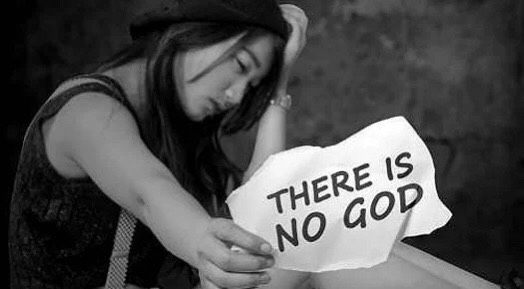Young People Today Are Moving Far From Religion

When the Buddhist temples and Christian churches are replete with aged people, it is questionable where the teenagers are. Some of them are playing chess, online games, or taking a nap perhaps. We do not know if the youthful defection from religion would be temporary or permanent. It seemed possible that as these young people grew older, at least some would return to a more traditional religious life. But there’s enough evidence that today’s younger generations may be leaving religion forever. Why are many young people not interested in religion? That is a good question to begin with.
In the 21st century, we need to accept the fact that the current diversity of beliefs leads society to minimize the role religion plays in public life so as to keep the peace. Kids and teenagers now see a bigger distinction between religious life and secular life instead of having religion pervade every aspect of their lives. They see that they can actually learn in school and understand the world quite well without the religious lenses that were forced on previous generations. They can have Hindu, Buddhist, Muslim, Jewish, Christian, and Atheist friends because they have bases to interact that don't include or require religion. And in the secularization of society that we now experience also accepts young people who question. They can talk to his friends and teachers more freely about atheism without fear of being turned over to the priest at the temple for corrective moral education.
Natcha Wattanakasikam, 21, confessed us that she had once believed in Christ, however, she finally lost faith. “While science and technology have developed, religion is still at the same place. It is remained stuck in the realm of the past and the written ancient text looks like a questionable source.”
The Bible as we know, is written by people through the power and influence of the Holy Spirit in them. It is being said that the Bible is written by faith. That is doubtful. Not all people believe. Not all people agree that there is even such a thing called faith. And as such, people eventually decided to reject the Bible.
Also, thanks to more information from Zelph On the Shelf, we learn new idea from her that the Bible isn’t a single book. It’s not even simply a collection of books. It’s a collection of translations of copies of copies of copies of copies of copies of copies of copies of fragments of stories written down many years after the facts and assembled and edited by errant human scribes with their own religious sand political motivations. When we read the Bible, we aren’t reading the direct, immutable word of God. We are reading someone’s retelling of a story they heard of a story someone else heard of a story someone else heard and soon for centuries in a time when there was no internet to fact check. While the stories may have been based on real characters or events, it’s unwise and to assume the final story we have is literal history.
Juthamas Ungjittrakun, 20, was a good Buddhist but now declaring herself to be one of the atheists. “I know how to behave myself in order to be a good citizen, I do believe in law, not religion.” Some people just see religion as a code of conduct to remain peace in society. So many years have passed, and the law has been proved that it can deal well with human behavior. Therefore, it is reasonable for some people to be less religious.
From the interview above, young people in this generation seem to have a critical thinking skills. They question about things around them. Why did they do that? All of the problems in today’s world are forcing young people to think. They have no choice. They either find a solution to their problems, or live a life of misery. Now, young people are developing critical thinking skills not from education but out of simple sanity. This higher thinking is over to all aspects of their lives. Combine this with the naturally rebellious nature of young folks, and the old morals of the past are scrutinized and rejected. "Praying" isn't going to pay the bills, get accepted to a famous university, or etc. Furthermore, it is hard to deny that young people are becoming more tolerant and accepting of different people, world views, and cultures. Higher education institutions tend to be the most liberal places a person experiences. When they are exposed to more experiences, this gives them critical thought. All of these factors combine to create a culture of critical thought and as time goes on, young people look at “theism” and conclude that it does not look reasonable to put their faith in. So they reject it somehow.
It is true that teenage life is the period that young people develop rebellious behavior, however, it is not always in the case of religion, since becoming atheist or an atheist is a choice. And being religious is no longer a trend for today youth, according to the interview.
- little bunny
เข้าสู่ระบบเพื่อแสดงความคิดเห็น
Log in